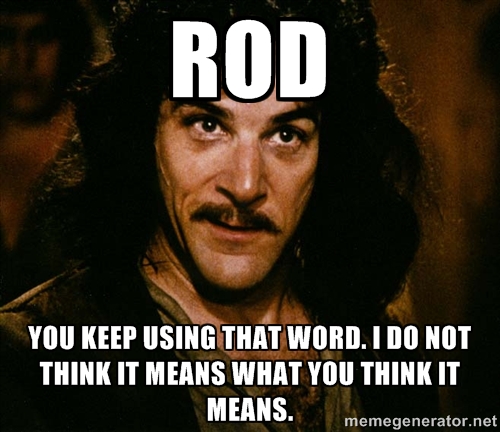Continued from Jewish? Non-Jewish? What’s the big deal?
In Romans 11, Paul is talking to the believers and explaining that the branches of Israel who rejected Messiah were cut off. It is important to note that they lay on the ground beneath the tree – they are not attached to one of the trees of the nations – not grafted into a wild tree – and not burned as in the analogy of John 15:6.
The branches of the non-Jews who were growing on the wild trees have been transformed by Messiah and moved, through no effort of their own, onto the domestic tree of Israel where they are now grafted into the Kingdom of God.
BUT, Paul cautions, they should not become arrogant – they should not think they are better than the branches that were cut off. Not only are they not on the domestic tree because of anything they did in their own effort – there is no room for pride – but if they do not stay in Messiah they can be cut off just as the domestic branches were.
AND . . . the domestic branches that were cut off, who were removed and made space for the wild branches to come in, can embrace Messiah and be re-grafted on to the tree of Israel! Paul even notes that the domestic branches, when they are back on their tree, will flourish with even better fruit than the wild branches can produce.
In fact, one of the purposes that the grafted in wild branches serve is that they will provoke those domestic, cut off branches to envy so that they will want to be back on their tree.
Who’s better?
Paul is giving this teaching to a community of believers that comprised of Jews and non-Jews. They are arguing about who is more special. Paul’s answer is that the non-Jews who are grafted in are part of the tree, just like the Jews by birth, because the Tree isn’t about nationality — it’s about being God’s Kingdom in the world. It’s about being God’s presence in the world. It’s about being God’s message to the world.
There is Torah. The Jewish community was charged with living it out and showing the world, to quote Tevye, “Who he is and what God expects him to do.” They were to “Let love and faithfulness never leave you; bind them around your neck, write them on the tablet of your heart.” (Prov 3:3, NIV) And then there was the Living Torah, Yeshua, who came to properly interpret and live out Torah. He blew open the minds and hearts of Jews and non-Jews. He was writing Torah on their hearts and they were living it out.
Jeremiah foretold it: “This is the covenant I will make with the people of Israel after that time,” declares the LORD. “I will put my law in their minds and write it on their hearts. I will be their God, and they will be my people.” (Jer 31:33, NIV)
Paul recognized it: “They show that the requirements of the law are written on their hearts, their consciences also bearing witness, and their thoughts sometimes accusing them and at other times even defending them.” (Rom 2:15, NIV)
So fast forward from Jeremiah, skim over the top of Paul, and land in the Messianic community. Many people found themselves in communities that considered people to be of different status depending on whether they were Jew or non-Jew.
In many communities, if you were Jewish by birth and had come to understand that Yeshua is Messiah then you were special, completed, fulfilling your destiny! If you were a non-Jew who had come to realize that Yeshua was the Jewish Messiah and you had attached yourself to the Jewish community, then you were less valued.
**Please note I am not discussing theological understandings of the Olive Tree as “Israel” or Paul’s message that non-Jews who embrace Messiah are attached to “Israel.” Rather, I am trying to express a way of treating non-Jews who were being viewed as “latecomers to the party” and the segregation that was going on in many communities.**
Any time you develop a class system within a church you are asking for trouble. Sure enough, trouble came in the form of the Ephraimite Movement/Two House Theology.
In a very rough summary, this doctrinal idea is a response to the message that those with Jewish blood were the “in-group.” This led to those who weren’t raised Jewish trying to find a way to “be” Jewish for real. We all want to join the “in-group,” don’t we?
To create their own “in-group” went something like this: the Bible says that the firstborn blessing was given to Ephraim and not Manasseh. It also tell us that Ephraim was the seeds that were sown to the nations when the Northern Kingdom was scattered. If we are living today, so many years after that, and are being drawn to Messianic worship . . that must mean we are descended from Ephraim! Right?!?
Ephraim got the firstborn blessing, over Manassah, and there is that passage in Ezekiel 37:16
“Son of man, take a stick and write on it, ‘For Judah, and the people of Israel associated with him’; then take another stick and write on it, ‘For Joseph (the stick of Ephraim) and all the house of Israel associated with him.’
So, the reasoning followed: HA, the non-Jews, who are clearly children of Ephraim, are actually MORE special than the Jews!
Except that isn’t true, or sound, and is merely another form of Replacement Theology. I wanted nothing to do with it.
In response to dealing with this idea on a regular basis, it was very important to me NOT to find out if I was Jewish by ancestry. It became very important to me to do nothing that looked like I might be endorsing this hierarchical approach to the Kingdom. I wanted to stay out of the mess altogether as a statement that it just doesn’t matter.
Then I left the community where I was encountering this idea rather regularly, and started a new community. My reason for not knowing was gone. My desire to know where I came from – Jewish or not! – kept growing. Since I no longer had a reason not to find out, I decided it was time.
That’s what I’ll talk about next time!
A healthy person is always looking for ways to preserve their power. The main way for any man comes to finding a healthy man viagra . When he finds the medication for a healthy sex, he takes pleasure and confidence. The right choice of product guarantees success in a relationship. Medications available over the counter. This method of purchasing guarantees all quality. Buy Viagra is to be bold.


 was born into a spiritual level of evil that would be a lot to overcome. It would be one thing to redeem them from that, but it is another thing to try and save all the children and they grow up knowing all of the adults were put to death. It doesn’t really set anyone up for success to be “saved” in that scenario.
was born into a spiritual level of evil that would be a lot to overcome. It would be one thing to redeem them from that, but it is another thing to try and save all the children and they grow up knowing all of the adults were put to death. It doesn’t really set anyone up for success to be “saved” in that scenario. ), the Land ready to be cleansed of the evil being done on it . . . and God tells them that HE will drive the people out ahead of them. And for the most part that is what happens!
), the Land ready to be cleansed of the evil being done on it . . . and God tells them that HE will drive the people out ahead of them. And for the most part that is what happens!


Recent Comments